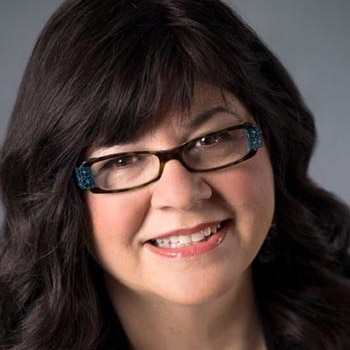by Hanna Perlberger
In this post, Hanna Perlberger, author of A Year of Sacred Moments: The Soul Seeker’s Guide to Inspired Living, blends Torah, ancient Jewish wisdom, positive psychology principles, and the insight of contemporary thought leaders.
“Our stories are the source of our suffering and the springboard to our liberation.” —David Drake
With the human psyche so wired for connection, it’s understandable that some inmates on Death Row will forgo lengthy appeals and choose death over remaining indefinitely in solitary confinement. About the only thing prisoners can do in interminable isolation is to go mad, and the damage is usually permanent.
And then there are those movies—we’ve all seen them—where the world needs to be saved through a top-secret mission, and only one manis fit for the job, but he happens to have been railroaded in a cover-up, and shipped off to a prison that doesn’t exist, a captive in solitary confinement. In goes the secret government official, winding through a series of massive steel doors, to a dark subterranean hidey-hole, and, with weapon drawn, warily faces the opening door. Inside, a shadowy figure emerges, hair and beard wildly feral and long, but sporting a six-pack that would make any gym rat jealous. Grinning with a sense of irony, he knows the balance of power has just shifted, and that he will have the upper hand in navigating whatever conversation is about to take place.
I love those movies! In a way, these plots resemble the story of Joseph. After 12 years in an Egyptian dungeon, the balance of power abruptly swings in Joseph’s favor as he is appointed Viceroy of Egypt on the spot. While the entire Joseph story is captivating, I am fascinated by pivotal moments where a storyline can go either way. What is it, I wonder, that makes one person emerge from a painful prison experience bitter and hardened, or wild-eyed and incoherent, while another uses the moment to self-actualize and, by the way, masterfully save the entire ancient world?
There’s a bigger picture here.
Maybe it has to do with the stories they tell themselves about who they are and why they are here. In the dreams of his youth, Joseph fully understood that he was destined to be major player in a divine plan. And so, no matter what he experienced, he never lost sight of a vision that he trusted would unfold. That attitude requires taking the long-game view of life. And so Joseph knew when to be proactive and “make it happen,” and when to surrender and “let it happen.” To do this, however, one needs a high degree of self-regulation, a coming back to center, which allows our best selves to naturally show up and make optimal choices that create a positive outcome.
Freedom Defined
We find a modern-day Joseph in the story of the famous refusenik Anatoly Sharansky, who was sentenced to 13 years in a Soviet labor camp for the crime of wanting to emigrate to Israel. After serving nine years, most of which was spent in solitary confinement, Sharansky was released; after emigrating to Israel, he founded a political party and became a member of the Israeli parliament. Sharansky recounts how he used to tell anti-Soviet jokes to his interrogators, and they had to exercise tremendous restraint to contain their laughter. “And I said to them, ‘You cannot even laugh when you want to laugh, and you want to tell me that I’m in prison and you’re free?’”
Sharansky defines freedom as the moment when he claimed his autonomy, when he realized that only he could humiliate himself, and only he could be ashamed of his actions. “If I’m not ashamed of what I’m doing, if I feel myself part of this great historic process, and I am true to the image of God in which we are created—I am a free person.”
When we allow other people to define us and write our stories, we imprison ourselves. When we are on autopilot, we lose track of our vision, the whoof who we are and why we are here. On the other hand, when we trust that the narrative arc of our lives is part of the unfolding of a divine destiny, then we can bear suffering as part of the hero’s journey—even if there is no happy ending.
As Sharansky said, even if he were to have died in that prison, he would have died a free man. Tormentors and oppressors are actors with bit parts in the cosmic play of our lives. It is we, however, who can define our character and write our lines. And if we can navigate terminal illnesses, personal tragedy, and heartbreak, and yet remain unbroken, then we are free.
How you do anything is how you do everything.
We don’t exist in a vacuum, but within a context, the context of relationship. Look at your life close to home. In every relationship we have, there are pivotal moments, where our story can go a number of different ways. Whenever we get triggered, whether by a family member, spouse, child, co-worker, neighbor, etc., or whenever that hot button is making our blood start to boil, that is the exact instant, the pivotal moment when the storyline we create in our head will drive the outcome.
Ask yourself: “How do I want this to go?” We can act with compassion or criticism, curiosity or control, unconditional love or judgment. Instead of resisting life, let life be your teacher. Even in prison, we don’t have to be anyone’s prisoner.
Hanna Perlberger, a graduate of CiPP, is an author, attorney, spiritual teacher, and coach. She speaks to people from all walks of life and helps them in their search for greater happiness, meaning. and spiritual engagement. Hanna’s newly released book, “A Year of Sacred Moments: The Soul Seeker’s Guide to Inspired Living,” guides readers through an interactive journey of ancient Jewish wisdom and positive psychology. For more information or to subscribe to her weekly blog, please visit ayearofsacredmoments.com










